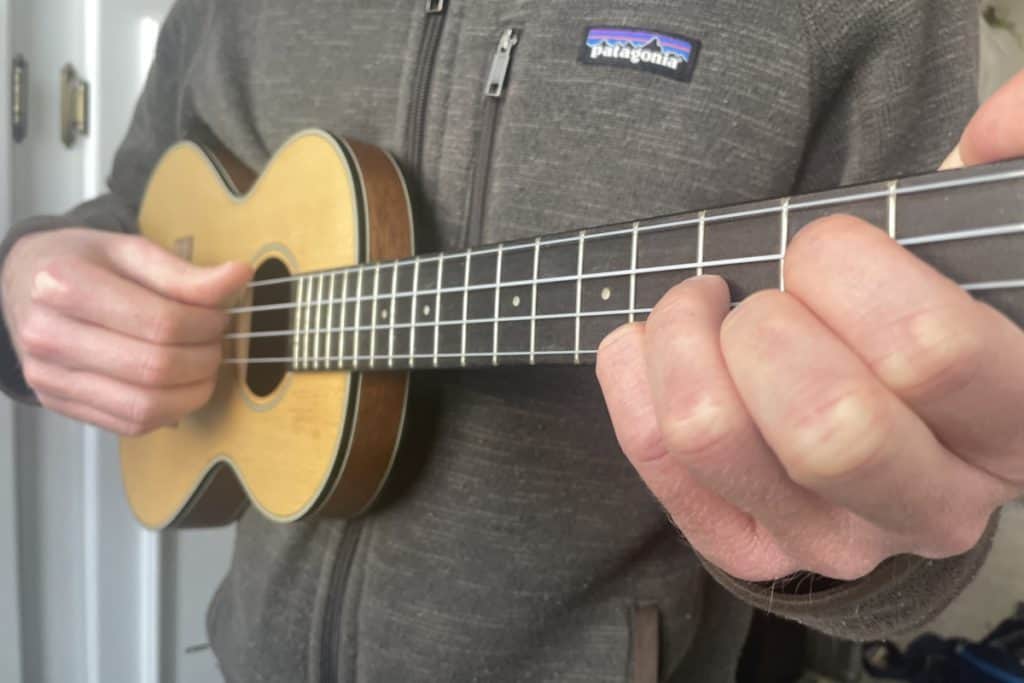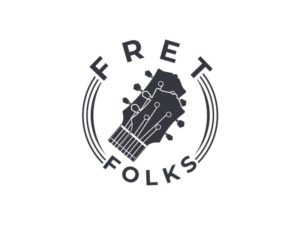In this article, I’ll explore whether the ukulele is a “serious” instrument.
I used to take the ukulele too lightly myself, but a few key things changed the way I think about the instrument. It’s easy to miss a ukulele’s dignity when you’re distracted by all of its charm.
Let’s jump right in.
Is Ukulele a Serious / “Real” Instrument?
The ukulele is real instrument that should be taken seriously. Its versatility, range, and expressiveness make it possible for the ukulele to play nearly any song. You can play Bach, The Beatles, Beethoven, Bohemian Rhapsody, or a suite of beachside lullabies on the ukulele.
Ukuleles have a uniquely laid-back reputation. You imagine someone strumming softly to the sound of rolling waves instead of performing to ten thousand people at the Sydney Opera House.
Most people can play a chord or two, but you rarely meet someone who’s invested hundreds of hours into ukulele practice. It’s more common to meet a professional piano player than a professional ukulele player, for example.
With that said, there are people who invest time into ukuleles and achieve virtuosity with the instrument, though. For example, Jake Shimabukuro:
Ukuleles also play a valuable role in popular music, appearing in thousands of well-known recordings over the course of the last century.
Not to mention, ukuleles are cut from the same cloth as guitars, cellos, violins, and most of the stringed instruments we regard with the utmost respect. If you consider a violin (which has 4 strings) a “real instrument” then you should also consider a ukulele (which also has 4 strings) a “real instrument”.
3 Reasons to Take the Ukulele Seriously

It’s understandable if you’re still not convinced. I get it! You’re looking to spend time on something serious, you like the ukulele, but you just don’t know if it’s worth your time.
I’ll unpack some of the other factors that make me think of ukuleles just as seriously as any other instrument.
1. Surprising Difficulty
It’s difficult to become proficient at the ukulele. The compact nature of the neck makes it easy to play some chords, but there’s much more to the instrument than simple chord formations. Expertise might take years to achieve.
The ukulele appears to be kind of easy. In some respects, ukes are easy instruments to get the hang of.
Once you get past basic chord formations and strumming patterns, things get trickier. I was under the impression that I’d be able to learn the ukulele without a hitch in my step.
I’d get frustrated because I wasn’t getting any better even though I played regularly. That’s when I realized I wasn’t practicing, I was just twiddling. The ukulele requires dedicated practice if you want to improve.
Once you apply enough effort, you’ll see the rewards of your consistent focus. You’ll feel more like a musician and less like a casual strummer.
2. Expressivity
You can express most moods and musical ideas with the ukulele. They offer players the ability to utilize a wide range of chords with minimal hand movement. The songwriters out there might free themselves up by spending time with a uke.
Most ukuleles have anywhere from 12 to 20 frets.
Multiply that number by four strings and you’ve got up to 80 notes to work with. You can explore all manner of scales, chords, and customizations to your instrument with different strings and tunings.
Add your own playing sensitivity to that equation and you have a near-infinite number of ways to express yourself.
3. Similarity to Other Stringed Instruments
The ukulele is very similar to other stringed instruments. You hit all of the same notes and chords, but the tone of those notes and chords will be different. Any song you can play on the violin, you can play on the ukulele.
I’ve touched on some of the stringed instruments that people tend to see in a serious light.
Most fretted instruments have a lot in common with the ukulele. When you get a feel for the relationships between notes on a ukulele, you can translate that knowledge to instruments like the guitar or mandolin.
This is an important point for two reasons. First, the more instruments you play and understand, the better the musician you’ll become. Second, the similarities between ukuleles and other “serious instruments” help us see that the ukulele is just as real as the others.
Why People Look Down on Ukulele
Despite all of the reasons to think highly of the ukulele, there’s still a sense that it’s not a serious instrument. Media, culture, and popular taste work together to create this public opinion. However, there are many people who regard the ukulele highly.
The best I can do is offer a few potential reasons for why people look down on ukuleles.
If you ask twenty people how they feel about the ukulele, you’d likely get twenty affirmative answers. If you were to ask if the ukulele was a serious instrument, many of those people might still say no.
So, what’s going on here?
Examples in Media
The ukulele doesn’t get a lot of representation in the media. When the media does portray the instrument, it’s not typically in a serious context. The ukulele might get more respect if it were glamorized in the press.
A big contributor is the fact that there are way more guitar heroes than ukulele heroes.
The status that comes from being a famous guitar player is far more extravagant than the status of ukulele players. Most popular music omits the ukulele so there are fewer status symbols for us to try and emulate.
With status comes respect, so we idolize people like Yo-Yo Ma and Jimi Hendrix. Consequently, people associate the cello and electric guitar with deep respect and appreciation.
The ukulele has always played a complementary role in popular music but it rarely takes center stage. Israel Kamakawiwo’ole’s breathtaking rendition of Somewhere Over The Rainbow certainly gave the ukulele some visibility but many people still don’t have a deep respect for his instrument.
Things change, though, and who knows? You might be the Jimi Hendrix of ukulele in a few years.
Regional Taste
Some areas of the world appreciate the ukulele more than others. For example, some populations in the United States don’t care about the ukulele very much, whereas there are plenty people in other areas who love it.
If you like this instrument, there’s a like-minded community somewhere out there for you to engage with.
Another thing to consider is the place you live. What sort of music do the people around you enjoy?
You’d likely find a lot more appreciation for the ukulele in Hawaii than you would in the heart of the continental United States. There are instruments across the globe that most people will never hear of, yet those instruments are deeply important to the people who make and play them.
Just because people might not appreciate the ukulele in the same way you do doesn’t mean that it’s not worthwhile.
What Age is Appropriate for Ukulele? (Can Adults Play Too?)
The ukulele is appropriate for people of all ages. The small neck makes it easy for children to play, but the variety of notes is sophisticated enough to challenge adults. Everyone is the right age to start playing.
If you’re interested in ukulele, you’re at the right age to give it a shot. It’s a perfect songwriting instrument as well. You can bring it anywhere, so you’re within arm’s reach when inspiration hits.
The uke’s size makes it a great fit for someone who travels a lot or has limited storage space. You can play it in your car when you’re on break from work or leave it resting on your end table to strum after a long day.
When you forget to bring your uke along to play on break, maybe your kids will pick it up off the couch and develop an interest in playing. After a few years, your whole family could start a little ukulele orchestra!
Is Ukulele a Beginner Instrument?
The ukulele can be a great beginner’s instrument. Nylon strings are easier on your fingers than steel strings and the neck is smaller so it’s easier to play simple chords. If you’re not familiar with stringed instruments, the ukulele is a great place to start.
It’s a great starting point because you can improve quickly. Regular practice with the ukulele could yield more growth than you’d find with other fretted instruments.
With that said, ukulele is not ONLY for beginners. Its also an instrument that you can continue learning and improving for decades. Again, I give the example of Jake Shimabukuro from the video above. It takes a lot of time and effort to reach that level of ukulele mastery.
Most of us never get to that level of skill, but if you do, I’m sure it will impress your friends just as much (if not more!) than an equivalent amount of mastery in another instrument.
